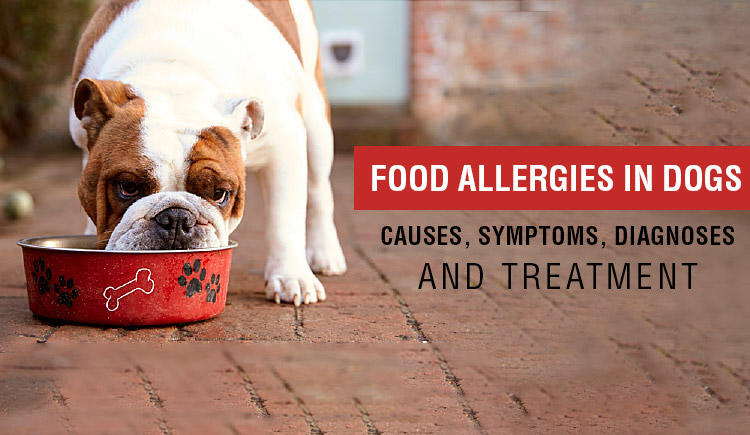Allergies are very common in pets just as it is in humans. The difference is that we can be vocal while it takes diligent observation to figure from what allergy the dog is exactly struggling with. When you notice your furry pal constantly itching and scratching like without any reason, it make be due to many factors such as fleas and ticks or even mosquitoes. But, if the itching and scratching happens often after you feed him something then it can be an alarming sign. Therefore, it is important to everything about food allergies in dogs.
Here we’ve explained the food allergies its signs, caused and treatment for dogs.
What Is Food Allergies in Dogs
Misinterpretations aren’t just a bubble in our head but also something that floats in our body. Yes, we can say that because just like us even dog’s immune system at times has to deal with misinterpretation. The dog suffers from food allergy when his immune system misinterprets a substance to be menacing which thus causes a trigger reaction. For an instance, a dog’s immune system may misinterpret protein as a violating substance that creates a strong body reaction in the form of head shaking, diarrhea, inflammation or itchiness.
Majorly it can be a genetic problem and when it is triggered, the allergies are exposed to anything a dog is allergic to. Moreover, studies have also focused on the early stages of development when the immune system may be weakened or changed due to the environmental changes or usage of antibiotics or other factors.
What Are The Signs Of Food Allergies in Pets?
The symptoms of food allergies in dogs may vary, but the most common ones include:
- Skin irritation
- Runny eyes
- Seasonal itchiness
- Redness and inflammation
- Coat patching
- Swelling in the face, feet, lips or earflaps
- Chronic itchiness
- Vomiting
- Diarrhea
- Bowel irritability
It is crucial for pet-parents to immediately take your pet to the vet if your notice them displaying any of these symptoms.
Foods That Causes Allergic Reaction in Dogs
The most common food items that engenders allergies in dogs are either derived from plant or dairy based ingredients such as-dairy, beef, white-egg, lamb, chicken, fish, rabbit, soy and pork. Every dog’s food allergens may vary therefore, before restricting them from eating any grain-free pet diets or before making any changes in their food regimen it is advisable to consult your vet regarding what food your dog is allergic to.
How To Diagnose Allergies In Dogs
It can be tricky to diagnose what food allergies your dog is exactly suffering from. There’s one way to diagnose food allergy in pets is by eliminating diet that your furry pal is now taking and put him on an entirely new diet. Once, the dog shows improvement then start reintroducing the old diet that caused allergies in him. If the dog still shows same reaction after a few days or weeks then it can be said that he has a food allergy of that particular food.
The second option is to ask your vet if your pet is dealing with food allergies and follow the diet that the vet provides.
Treating Food Allergy in Pets
When it comes to treating food allergies in dogs, it is always recommended to take the professional input of your vet. A veterinarian will provide a hydrolyzed or novel protein diet that’s not likely to cause a reaction in your dog and your pooch will be able to live an allergy-free and happier life.
Food allergies in pets can be disturbing as it can mess with your dog’s eating cycle and cause many other problems. Therefore, ensure to take the required steps and follow the vet’s instructions to keep your pup healthy.


